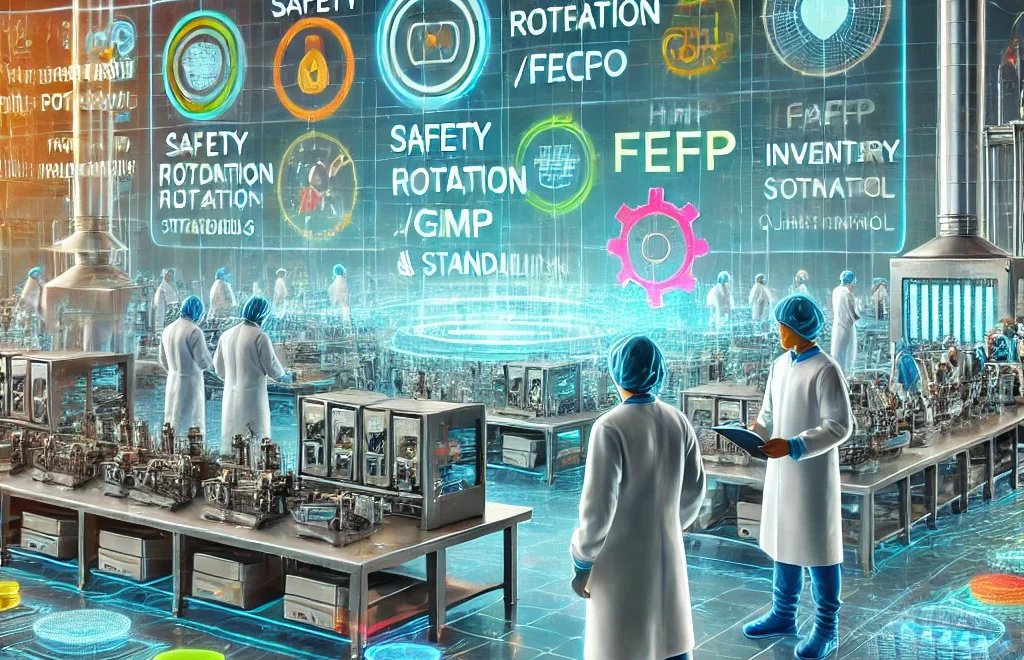Groyyo drives excellence in food manufacturing by upskilling workers and handlers, enhancing product quality and streamlining production processes. Through tailored training, it empowers industries to adopt best practices, ensuring safety, efficiency, and superior output, ultimately fostering sustainable growth and competitive advantage in the dynamic food production sector.
Food handling and food safety management skills
Working in the food industry requires more than just a passion for cooking or serving. It demands adherence to safety regulations, proper handling of ingredients, and ensuring customers’ well-being. As a food handler, developing your skills is crucial not only for the success of your career but also for ensuring food safety standards are met. This blog will provide tips and insights into how you can enhance your food handler skills and advance in your profession.
Understand the Importance of Food Safety
A competent food handler is understanding why food safety matters. Poor food handling can lead to foodborne illnesses that have severe consequences for both consumers and businesses. By developing a strong foundation in food safety principles, you not only comply with regulations but also contribute to the health and satisfaction of your customers.
Key Skills to Improve for the Workers:
Personal hygiene, food safety, and proper food handling are essential in ensuring a clean and safe workplace. These practices, including maintaining cleanliness, safe food storage, and avoiding contamination during preparation, play a crucial role in preventing health risks. Approaches like HACCP (Hazard Analysis and Critical Control Points) and GMP (Good Manufacturing Practices) focus on controlling food safety hazards and maintaining consistent product quality. Additionally, FIFO/FEFO inventory principles help manage food stock efficiently.
Workplace safety involves measures to prevent accidents, including proper machine handling and waste management. Implementing systems like 6S—Sort, Set in Order, Shine, Standardize, Sustain, and Safety—enhances organization and safety. These practices, combined with safe equipment operation and effective waste recycling, create a healthier, more sustainable environment in the workplace.
Developing Strong Soft Skills
Communication Skills
Good communication is essential in the food industry. As a food handler, you must be able to work effectively. Clear communication helps prevent mistakes, ensures tasks are completed efficiently, and promotes a safe and pleasant working environment.
Time Management:
Managing time effectively serves as a tool to boost work efficiency and productivity, enabling tasks to be completed faster and with greater ease, rather than demanding longer, harder effort. A tool like time management allows you to enhance efficiency, completing tasks quickly and effortlessly instead of requiring more labor and hours. Working smarter, not harder, is possible with time management, helping accomplish tasks efficiently and swiftly without extending work hours unnecessarily. The relevance of “Time is money” persists today and will continue to hold true for future generations.
According to studies, poor time management or a failure to prioritize tasks is one of the main causes of stress. It has been noticed that if one work misses its deadline or completion date, the impact will spread to other initiatives. In other words, if time is not effectively controlled, all the activities will be delayed.
Stress management
Stress Management is closely related to time management. Effective time management is a primary means to a less stressful life. It may also result in anger and depression, affecting one’s health adversely.Few major causes of workplace stress are: –
-
- New at Job
- Poor planning
- Not enjoying your job
- Insufficient resources to do the job
- Not feeling appreciated
Importance of Teamwork
Teamwork is very important to complete the task and meet the objectives. It becomes even more important and vital when there are several people involved in the activity.
Agro-food processing is now led by precision and high level of automation which makes it more important for workers in a collaborative manner to achieve the final objective. A team is as strong as the weakest member in the team which makes it important that collaborative work is encouraged. The importance of teamwork can be summarized below key points.
- Enhances efficient and effective
- Its helps in maximize their job performance of individuals
- Encourages an inviting and productive atmosphere for new members
Leadership Skill
Leadership is the ability to influence others, with or without authority. The ability to influence others is a derivation of Interpersonal Communications, Conflict Management, Problem Solving / Decision Making.
These Skills and techniques can help to the food manufacturing to improve their productivity and quality of the food.
By focusing on hygiene, communication, time management, and other trainings, you can ensure a safe and efficient environment for both your team and customers. Whether you’re starting your career in food service or looking to advance, these skills will help you become a more competent and successful food handler.
Conclusion
Skill development for food industry workers enhances efficiency, safety, and product quality. By mastering hygiene, food safety, handling, HACCP, GMP, 6S, inventory management, machine handling, workplace safety, and waste management, workers contribute to sustainable operations, customer satisfaction, and business growth, fostering a culture of continuous improvement and excellence.


Leave a Comment